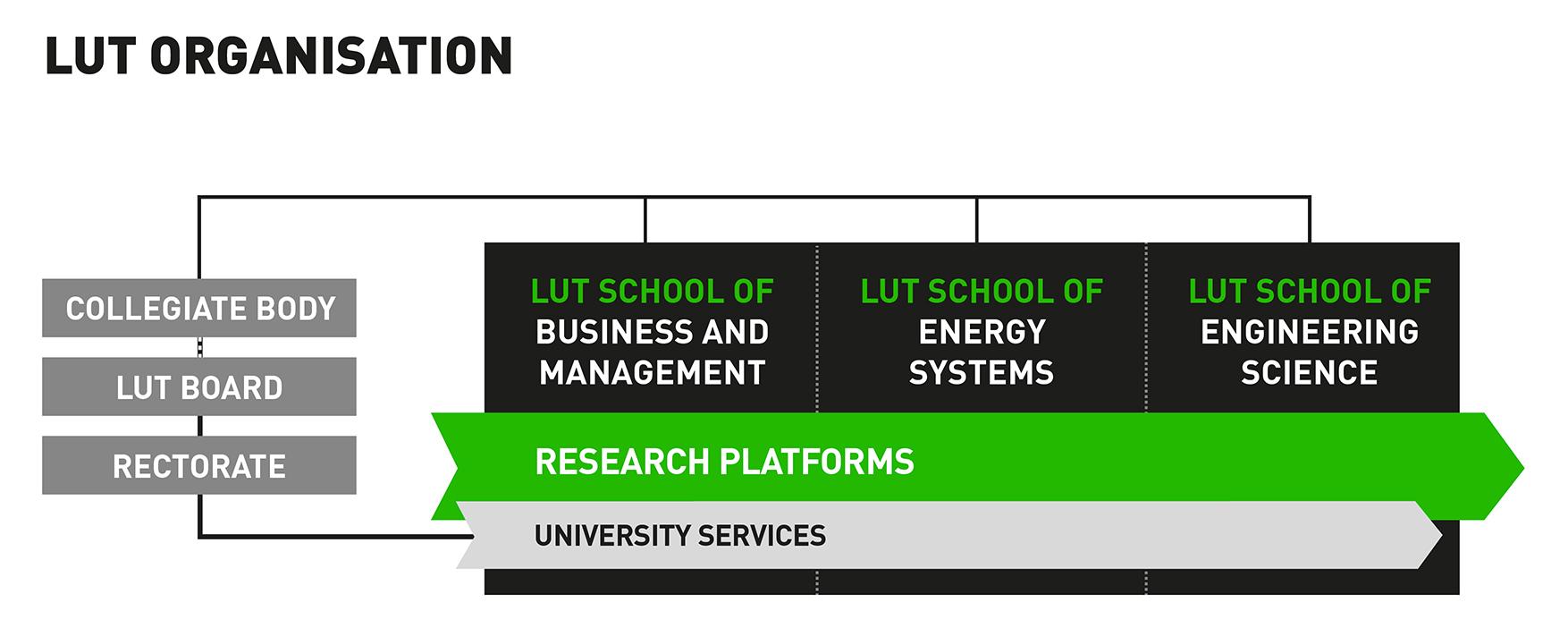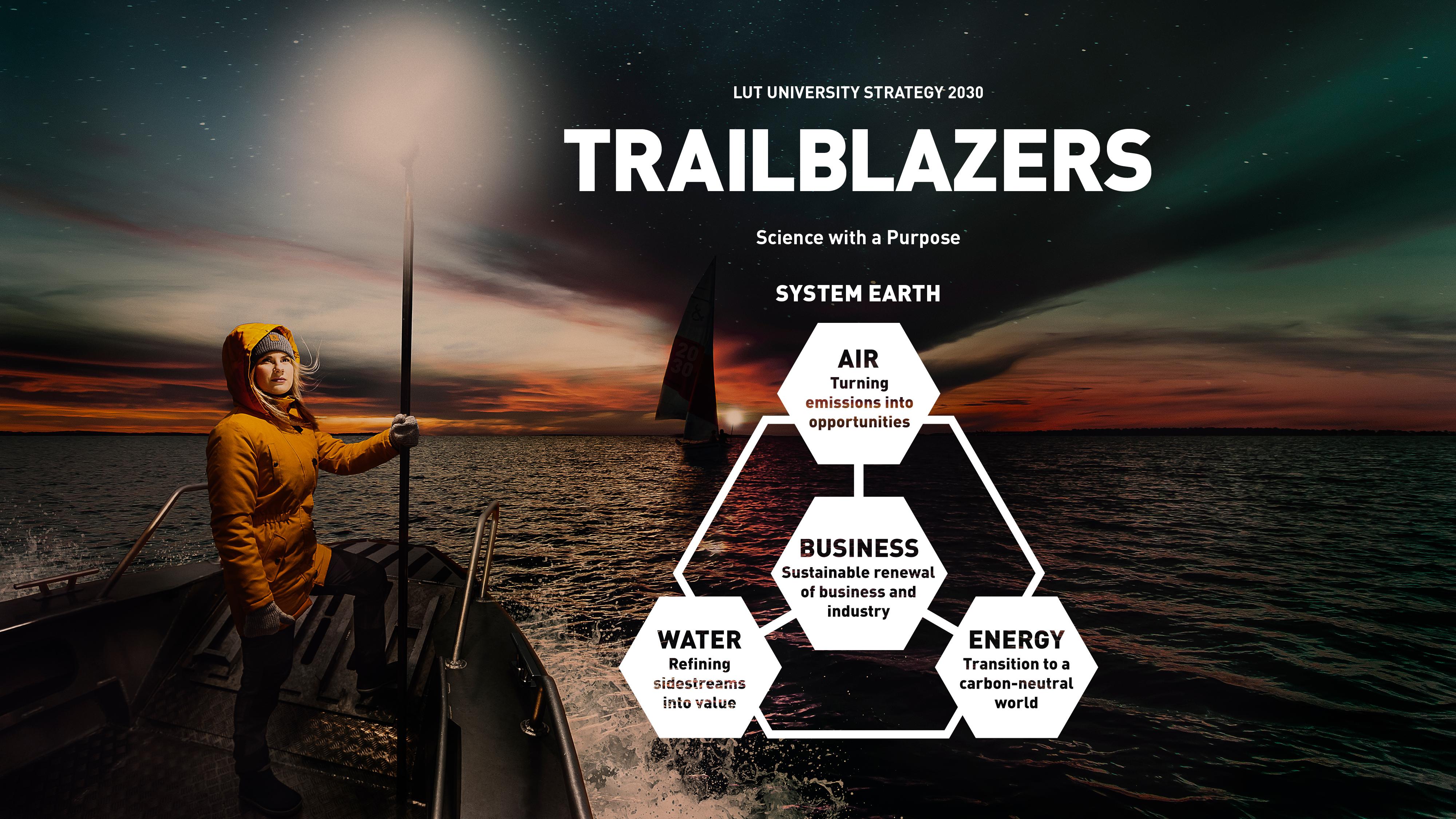The organisation of LUT
The Lappeenranta–Lahti University of Technology LUT specialises in scientific research and academic education in the fields of technology and business administration. LUT and its affiliate, the LAB University of Applied Sciences (LAB), compose a corporate group (LUT Group) to benefit both parties through collaboration.
The University Board, chosen by the collegiate body, is LUT’s highest decision-making body. The activity of the university is led by a rector, supported by two vice-rectors, deans of schools and other members of the management committee. LUT’s Advisory Board helps LUT to increase its academic impact.
To execute its academic mission, LUT has three schools headed by a dean:
- School of Business and Management (LBM)
- School of Energy Systems (LES)
- School of Engineering Science (LENS).
Multidisciplinary research platforms integrated into the schools strengthen the research activities and impact of LUT’s strategic scientific focus areas.

Figure 1. The organisation of LUT
LUT has two campuses – one in Lappeenranta and one in Lahti – and two regional units in the cities of Kouvola and Mikkeli carrying out research and education in accordance with the remit of the schools. LUT provides centralised support services for both LUT and LAB.
LUT has approx. 5300 students and 940 staff members representing 80 different nationalities (see Key Facts 2019).
Strategy 2030 – Trailblazers – SYSTEM EARTH
The University Board approves the strategy defining LUT’s targets and strategic choices. In the Strategy 2030, LUT has defined the strategic focus areas (Figure 2), to which it seeks solutions through technology and business expertise. In addition, LUT follows the growth strategy of the LUT Group, focusing on international student recruitment and education export, new education paths, and making an impact on industries.

Figure 2: Strategic focus areas of research
In its strategy, LUT emphasises the impact of its activities (strategy video). The strategy is complemented by action plans that define concrete actions to achieve the strategic targets. The action plans cover the following themes:
- Significant research player in Europe: excellence in research, strategic partnerships in research and education, open science practices
- Renewers of companies and the society: graduate impact, from research breakthroughs to business, science-based decision-making and communication
- Open, dynamic and attractive intercultural campuses: at home on all campuses, responsive work climate, carbon-negative LUT by 2024.